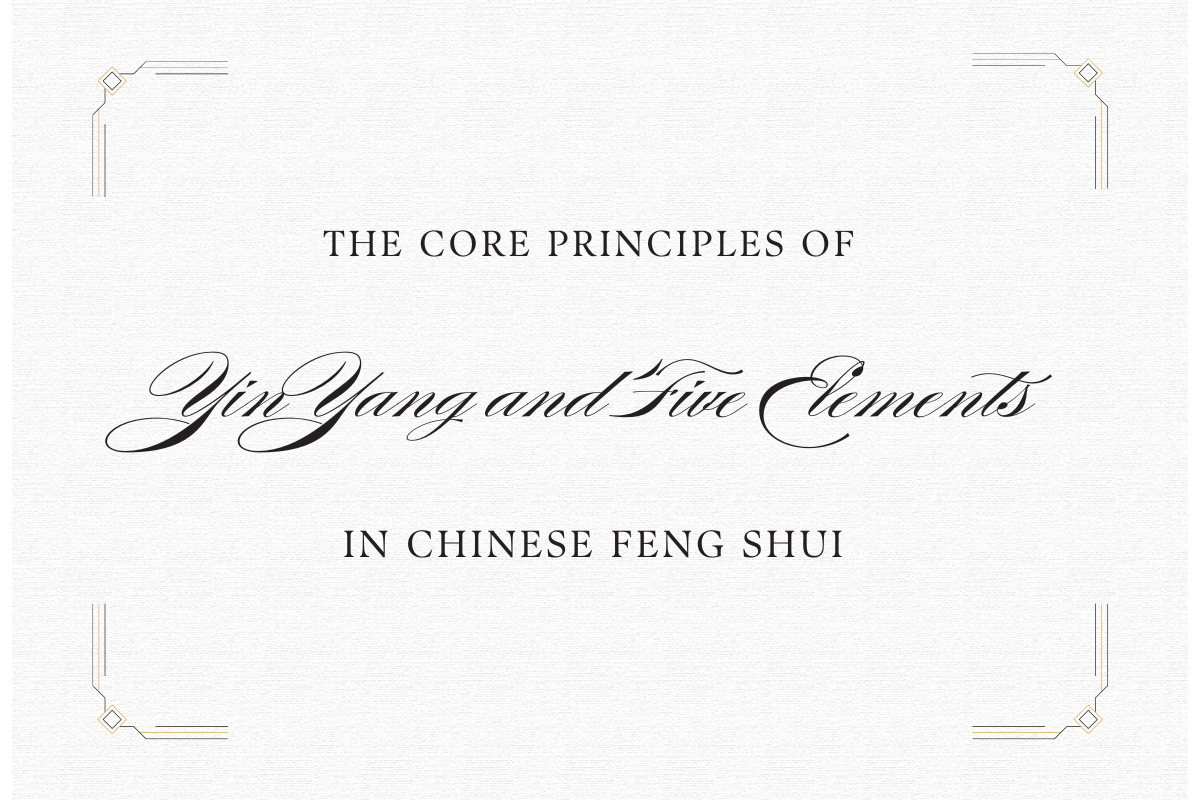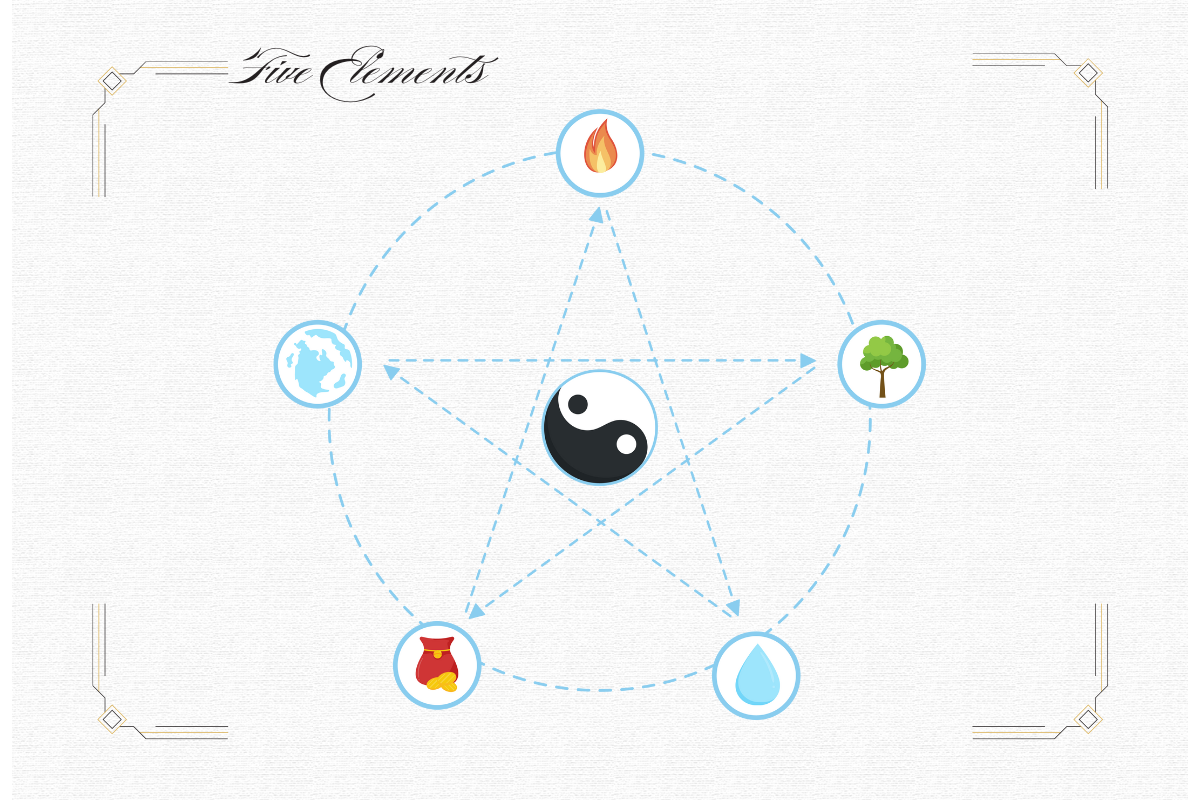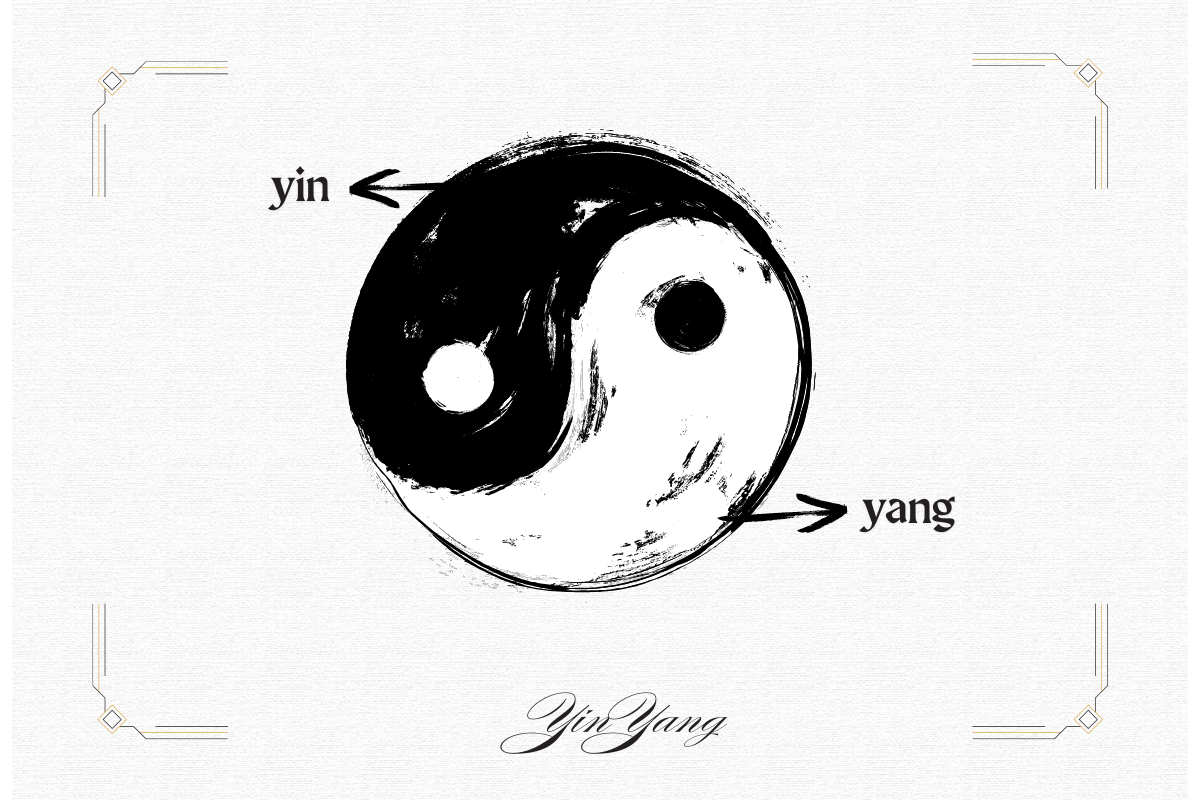The Core Principles of Yin Yang and Five Elements in Chinese Feng Shui
The central theories of Yin Yang and Five Elements in Chinese Feng Shui form the foundational philosophical framework to comprehend the entire system. Originating from ancient perceptions of nature and the universe, they profoundly influence Feng Shui's logic in judging environments, orientations, and auspiciousness. The following provides a brief overview from the perspectives of concepts, meanings, and practical applications of Feng Shui:

Yin Yang: The Fundamental Law of Opposition and Unity in All Things
Core Concepts
Yin: Represents darkness, cold, stillness, softness, and introversion (such as the moon, night, water, and femininity).
Yang: Signifies light, warmth, movement, strength, and extroversion (like the sun, daytime, fire, and masculinity).
Relationship: Yin and Yang are not absolute opposites but rather interdependent, transforming, and seeking balance平衡(píng héng) (such as day-night alternation and seasonal cycles).
平衡(píng héng),noun,balance
Example:
- Cycling requires good balance.
骑自行车需要平衡感。
qí zì xíng chē xū yào píng héng gǎn. - Work-life balance is important.
工作与生活的平衡很重要。
gōng zuò yǔ shēng huó de píng héng hěn zhòng yào.
Feng Shui Applications
Environmental Balance: Optimal Feng Shui requires harmony of Yin and Yang.
For instance: A house with a lower front and higher back (front allowing in light is Yang, while a mountain behind brings stability as Yin).
Lighting and Shadow: Excessive darkness (Yin dominance) leads to suppression, while overexposure to sunlight (Yang excess) causes restlessness.
Layout Principles:
Active areas (living room, kitchen) should have more Yang energy, while restful areas (bedroom) need a balance of Yin with Yang (requiring gentle light).
Proportionate distribution of doors and windows (dynamic, Yang) and walls (static, Yin) to avoid imbalance.
Five Elements: Dynamic Energy System Governing the Universe
Core Concepts
The Five Elements refer to the basic elements of metal, wood, water, fire, and earth, wherein:
Generation: Wood → Fire → Earth → Metal → Water → Wood (nourishing cycle).
Restriction: Wood → Earth → Water → Fire → Metal → Wood (controlling cycle).
Key factor: The Five Elements represent energy qualities and movement patterns rather than physical substances (e.g., "wood" symbolizes the energy of growth and expansion).
Feng Shui Applications in Directional Matching (Post-heaven Bagua Directions):
Wood
- Direction: East, Southeast
- Symbolic Meaning: Vitality, growth
Fire
- Direction: South
- Symbolic Meaning: Fame, vigor
Earth
- Direction: Center, Southwest, Northeast
- Symbolic Meaning: Stability, inclusiveness
Metal
- Direction: West, Northwest
- Symbolic Meaning: Harvest, decision-making
Water
- Direction: North
- Symbolic Meaning: Wisdom, flow

Adjusting Environmental Elements:
- Remedying Deficiencies: If a home lacks the Eastern region (wood), adding plants or wooden furniture can compensate.
- Resolving Conflicts: A kitchen (fire) in the Northwest (metal) area creates a "fire against metal" scenario, unfavorable for the male head of the household. Adding earth elements (yellow pottery) can counterbalance and dissipate the fire dominance.
Materials and Colors:
- Wood: Green, striped patterns, plants
- Fire: Red, triangular shapes, lighting
- Earth: Yellow, square shapes, ceramics
- Metal: White, circular shapes, metallic objects
- Water: Black/deep blue, wavy patterns, fish tanks
The Synergy协同作用(xié tóng zuò yòng) of Yin Yang and Five Elements in Feng Shui
协同作用(xié tóng zuò yòng),noun,synergy
Example:
- Teamwork creates synergy.
团队合作产生协同作用。
tuán duì hé zuò chǎn shēng xié tóng zuò yòng. - Medicines may have synergistic effects.
药物可能有协同作用。
yào wù kě néng yǒu xié tóng zuò yòng.
Perspective on Dynamic Equilibrium:
Feng Shui practitioners analyze the Yin Yang dynamics in the environment (like the stillness and movement of mountains and water, solidity and openness of architecture) and the distribution of the Five Elements (directions, materials) to ascertain if the energy flow is "harmoniously coexisting."
For example, a mountain (Yin stillness) should be coupled with flowing water (Yang movement) to achieve a "Yin embracing Yang"; when surrounded by impassable mountains (Yin stagnation), windows may need to be opened for light (bolstering Yang) or running water installed to activate the energy flow.
Integration with Personal Destiny:
Bazi Feng Shui: Individual birth dates determine the favorable and unfavorable Five Element relationships (e.g., "favoring wood and avoiding metal"). Feng Shui arrangements should enhance the needed Elements for the individual's destiny.
For instance, a person favoring water energy may position their study room in the north, placing a black desk or water feature to boost intellectual energy.
Yin Yang and Five Elements transform abstract cosmic laws into tangible environmental guidelines, making Feng Shui a study of spatial philosophy seeking resonance among "Heaven, Earth, and Humans." At its core lies the belief that imbalances can be adjusted, without absolutes of good or bad, only seeking harmony within the dynamics.
